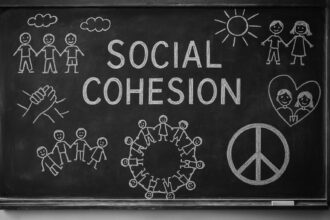Florida reaches a settlement on the ‘Don’t Say Gay’ law, clarifying that discussions on gender identity and sexual orientation cannot be limited in schools, marking a significant victory for LGBT+ rights.
In Florida, a significant amendment has been made to the contentious “Don’t Say Gay” law, following a two-year legal dispute, resulting in a settlement that substantially dilutes its perceived discriminatory and harmful impacts. Under this recent agreement, it has been clarified that the legislation cannot be employed to limit discussions in schools on matters of gender identity and sexual orientation. This clarification ensures that teachers and pupils can freely express their LGBT+ identities, display Pride flags, and converse on LGBT+ subjects without the anxiety of facing legal actions. The settlement has been celebrated as a triumph for LGBT+ rights, fostering an environment of empathy and acceptance within educational settings.
This lawsuit settlement comes amid criticism of Florida Governor Ron DeSantis for his stance on educational policies, including a backlash against a spate of book bans focused on content deemed inappropriate for reasons relating to sexuality or race. Critics have argued these bans serve to stifle necessary discussions in educational environments. Concurrently, DeSantis has proposed a rule targeting school principals, aiming to penalize those who hinder access to certain educational materials, a move seen by some as shifting blame within the ongoing controversy over book bans in the state.
The “Don’t Say Gay” law, signed by Governor DeSantis in 2022, prohibits “classroom instruction” on sexual orientation and gender identity in a manner that opponents argue was vaguely defined and potentially discriminatory. Despite the administration’s claims that the law shields young students from LGBT+ topics, the settlement indicates an adjustment towards allowing open dialogue on these issues within schools. The law and subsequent policies, coupled with the administration’s approach to book bans, have spotlighted the divide concerning LGBT+ rights and education both within Florida and nationally, alongside raising concerns over the impacts of such legislation on the state’s educational atmosphere and approach to teacher and student rights.













